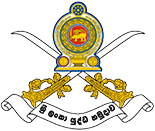The session two of the inaugural day (Sept 3) of the ‘Defence Seminar -2013’, now underway at Colombo Galadari Hotel was devoted to the thematic subject of ‘Nation-Building’ with three-member panelists, Mr Mohan Samaranayake (Chairperson), Mr Ajith Nivard Cabraal and Mr Arun Thambimuttu, a veteran economist with ancestral roots to the eastern town of Batticaloa.
Mr Ajith Nivard Cabraal touching the question of ‘Transforming the Pearl of Asia into a Strategically Important Economic Centre of the World’ traced the economic decline of the country to colonial powers whose intentions were otherwise as rulers of that period.
“Having suffered so much, Sri Lanka is now moving to the new era to realize a potential stakeholder in the region as set out in the Mahinda Chintana policy framework which has launched the ‘5+1 Hubs’ concept in order to take the country to the world as a ‘break-out’ nation.
Mr Arun Thambimuttu, the son of LTTE butchered Parliamentarian late Mr Sam Thambimuttu who has returned to Sri Lanka for permanent residence after his exile in the UK, spoke out his mind and set correct perspectives regarding the genesis of the Sri Lankan problem that started well before independence.
The notion co-existence began to crack the minds of the Sinhalese, creating fear psychosis when Indian Tamils were brought and settled in the plantations. Tamils were for a unitary state and not even for federalism in the 1940s but subsequent wrong political decisions gave birth to the syndrome of separatist ideology as Tamil nationalism was taking roots.
“This indoctrination was so strong even after the LTTE was comprehensively defeated, many international players were not prepared to admit it and the terrorist leader decimated. In fact, international actors were upset and embarrassed to hear of the end of terrorism in Sri Lanka because for them it was negotiations, peace talks, cease-fires, etc all throughout. Nearly 40,000 families in the East lost at least one Tamil member in the family during the 3 decade long violence,” he said.
“The fact remains that the armed forces in the East have become part and parcel of the lives of the Tamil people living in the East. They want the Army to do their construction works, house building, etc in their residential areas. The reason is simple. People feel the Army is doing a genuine job, for that matter any help or assistance by way of transporting emergency, medical help, etc etc and the Army is very popular among them, Quite recently one of the leading citizens in my area wanted Army troops to give a facelift to their school which is about to mark its 200th anniversary because he was confident that the Army would do a better job than other state workforce. There was a time a woman in my area was hanged for sharing a cool drink with an Army soldier who was on duty in the area and that was one strategy used by the LTTE to keep people off from close contact with the Army. The Army with their resources are doing a praiseworthy job in the area and this simple positivity has been undermined by the international community. The world has failed to understand these realities and if the Army services are pulled out from those areas, people will certainly encounter difficulties while creating space for another fundamental force to creep in exploiting the lapse.”
In reply to a query, Mr Thambimuttu said that the Army after the war did not see an ordinary Tamil as a terrorist. “Had the Army gone to the barracks, the country would not have been able to meet the aspirations of the people, nor have they found support for their livelihood or economy. I don’t think as the international community claims, 60 years of indoctrination of the mindset of Tamil people could be changed overnight,” Mr Thambimuttu added.
Referring to smuggling of easterners in search of greener pastures, he said young people have aspirations and this notion of having a lucrative life in western capitals is all the time encouraged by the Diaspora for various reasons. “Life patterns and social needs have changed and even young girls wish to get married to an expatriate Tamil living in London or Toronto instead. This is natural and should not be taken out of context” Mr Thambimuttu added.
Mr Ajith Nivard Cabraal touching the question of ‘Transforming the Pearl of Asia into a Strategically Important Economic Centre of the World’ traced the economic decline of the country to colonial powers whose intentions were otherwise as rulers of that period.
“Having suffered so much, Sri Lanka is now moving to the new era to realize a potential stakeholder in the region as set out in the Mahinda Chintana policy framework which has launched the ‘5+1 Hubs’ concept in order to take the country to the world as a ‘break-out’ nation.
Mr Arun Thambimuttu, the son of LTTE butchered Parliamentarian late Mr Sam Thambimuttu who has returned to Sri Lanka for permanent residence after his exile in the UK, spoke out his mind and set correct perspectives regarding the genesis of the Sri Lankan problem that started well before independence.
The notion co-existence began to crack the minds of the Sinhalese, creating fear psychosis when Indian Tamils were brought and settled in the plantations. Tamils were for a unitary state and not even for federalism in the 1940s but subsequent wrong political decisions gave birth to the syndrome of separatist ideology as Tamil nationalism was taking roots.
“This indoctrination was so strong even after the LTTE was comprehensively defeated, many international players were not prepared to admit it and the terrorist leader decimated. In fact, international actors were upset and embarrassed to hear of the end of terrorism in Sri Lanka because for them it was negotiations, peace talks, cease-fires, etc all throughout. Nearly 40,000 families in the East lost at least one Tamil member in the family during the 3 decade long violence,” he said.
“The fact remains that the armed forces in the East have become part and parcel of the lives of the Tamil people living in the East. They want the Army to do their construction works, house building, etc in their residential areas. The reason is simple. People feel the Army is doing a genuine job, for that matter any help or assistance by way of transporting emergency, medical help, etc etc and the Army is very popular among them, Quite recently one of the leading citizens in my area wanted Army troops to give a facelift to their school which is about to mark its 200th anniversary because he was confident that the Army would do a better job than other state workforce. There was a time a woman in my area was hanged for sharing a cool drink with an Army soldier who was on duty in the area and that was one strategy used by the LTTE to keep people off from close contact with the Army. The Army with their resources are doing a praiseworthy job in the area and this simple positivity has been undermined by the international community. The world has failed to understand these realities and if the Army services are pulled out from those areas, people will certainly encounter difficulties while creating space for another fundamental force to creep in exploiting the lapse.”
In reply to a query, Mr Thambimuttu said that the Army after the war did not see an ordinary Tamil as a terrorist. “Had the Army gone to the barracks, the country would not have been able to meet the aspirations of the people, nor have they found support for their livelihood or economy. I don’t think as the international community claims, 60 years of indoctrination of the mindset of Tamil people could be changed overnight,” Mr Thambimuttu added.
Referring to smuggling of easterners in search of greener pastures, he said young people have aspirations and this notion of having a lucrative life in western capitals is all the time encouraged by the Diaspora for various reasons. “Life patterns and social needs have changed and even young girls wish to get married to an expatriate Tamil living in London or Toronto instead. This is natural and should not be taken out of context” Mr Thambimuttu added.
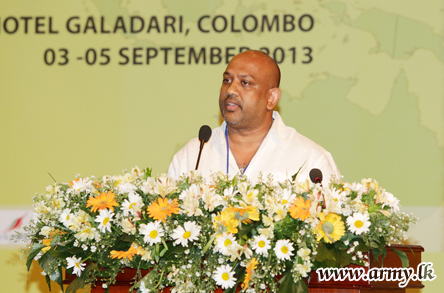 |
 |
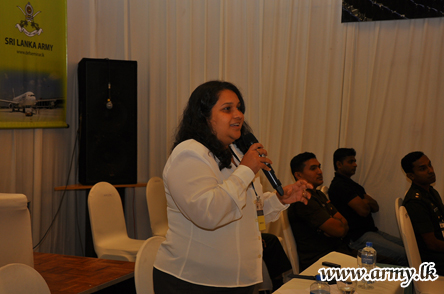 |
 |
 |
 |
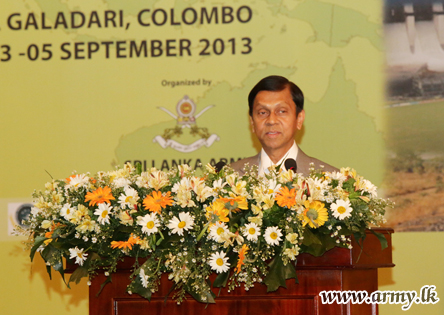 |
 |
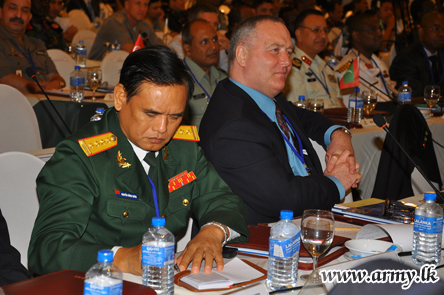 |
